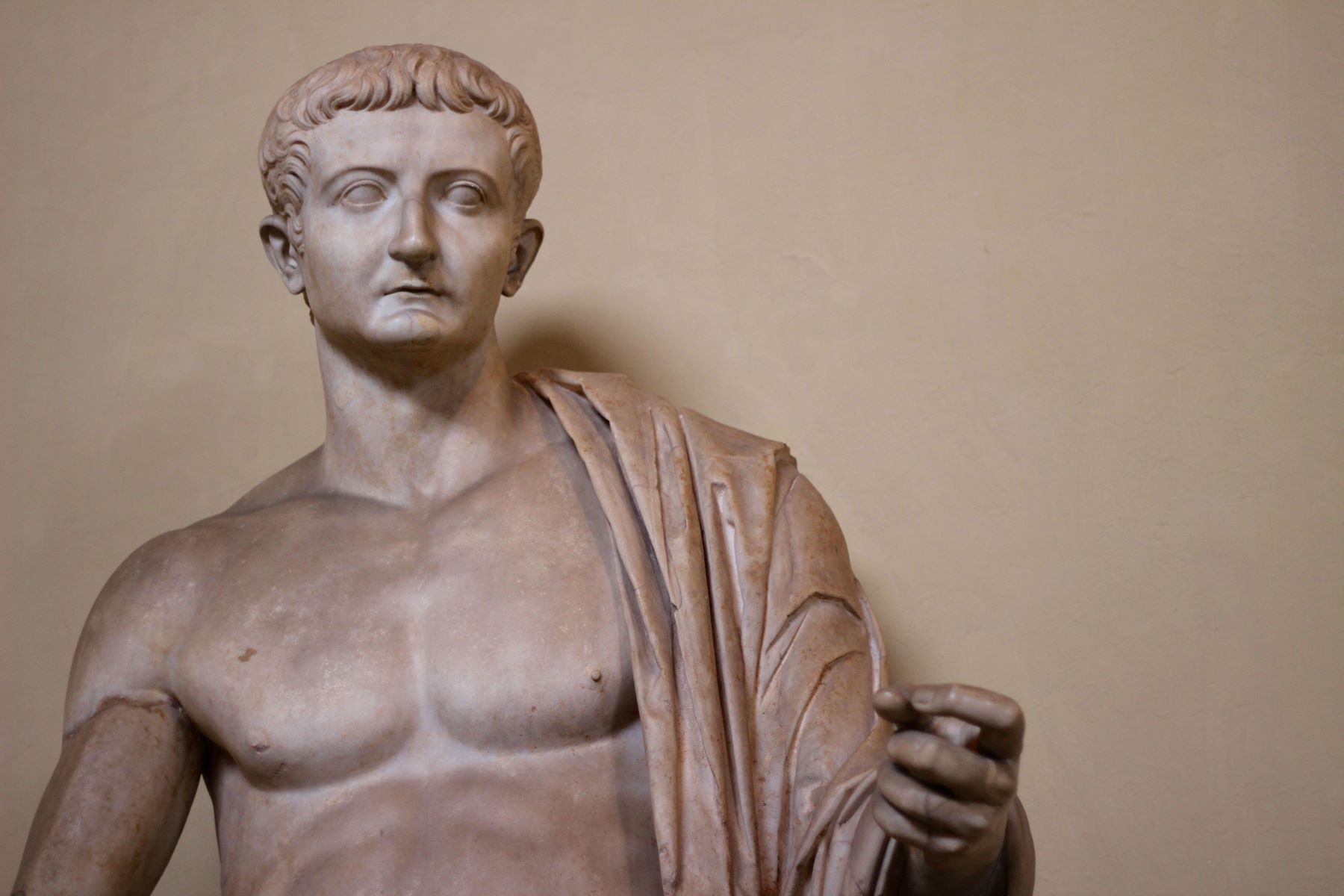
Tiberius, the second Roman emperor who ruled from 14 AD to 37 AD, was a figure of great intrigue and mystery. Known for his complex personality and controversial reign, Tiberius left a lasting impact on the history of the Roman Empire. In this article, we delve into 18 fascinating facts about Tiberius that shed light on both his accomplishments and controversies. From his early military career to his tumultuous relationships with his mother and the Roman Senate, Tiberius’s life is a captivating tale of power, politics, and personal struggles. Join us as we unravel the enigmatic life of Tiberius and explore the lesser-known aspects of this iconic Roman emperor.
Key Takeaways:
- Tiberius, the second emperor of Rome, was a complex and enigmatic figure known for his military prowess, reclusive nature, and controversial legacy.
- Despite his accomplishments in expanding the Roman Empire and implementing fiscal reforms, Tiberius’ reign was marked by strained relationships, suspicions, and a mysterious death, leaving behind a captivating and debated legacy.
Tiberius was the second emperor of Rome.
Tiberius, born Tiberius Claudius Nero, ascended to the throne after the death of his stepfather, Emperor Augustus, in 14 AD. He ruled as emperor until his own death in 37 AD.
Tiberius was known for his military skills.
Prior to becoming emperor, Tiberius had a successful military career and was well-regarded for his strategic abilities. He played a significant role in the Roman conquest of Germany, securing the northern borders of the empire.
Tiberius had a complex relationship with the Senate.
During his reign, Tiberius often clashed with the Senate, which led to a decline in the authority of the Roman Senate. He was known to be suspicious of their motives and was reluctant to grant them too much power.
Tiberius built the Villa Jovis on the island of Capri.
One of Tiberius’ most famous architectural projects was the construction of the Villa Jovis, a grand palace overlooking the Bay of Naples. It was known for its extravagant design and stunning views.
Tiberius was accused of sexual perversions and cruelty.
Throughout history, Tiberius has been portrayed as a cruel and debauched ruler, accused of engaging in various acts of sexual depravity. However, it is important to note that these accusations are largely based on historical accounts and may be exaggerated or politically motivated.
Tiberius was known for his reclusive nature.
Later in his reign, Tiberius withdrew from Rome and lived in seclusion on the island of Capri. He became increasingly distrustful and isolated himself from the political affairs of the empire.
Tiberius had a complicated relationship with his adopted son, Germanicus.
Tiberius adopted Germanicus, his nephew, as his heir apparent. However, their relationship became strained, leading to Germanicus’ mysterious death. Many believed that Tiberius was responsible for his untimely demise.
Tiberius expanded the Roman Empire.
During his reign, Tiberius continued the expansion of the Roman Empire, particularly in the regions of Africa and the Middle East. He solidified Roman control over these territories through diplomacy and military campaigns.
Tiberius implemented fiscal reforms.
Tiberius introduced several fiscal reforms aimed at stabilizing the Roman economy. He enforced strict taxation policies and cracked down on corruption within the government.
Tiberius practiced astrology.
Tiberius had a fascination with astrology and consulted astrologers regularly. He believed that the alignment of the stars could influence his decision-making and the fate of the empire.
Tiberius was succeeded by his grand-nephew Caligula.
After Tiberius’ death, his grand-nephew Caligula became the next emperor of Rome. Caligula’s reign was marked by extravagance and tyranny, which contrasted with the more reserved nature of Tiberius.
Tiberius had a complex relationship with the military.
Tiberius was hailed as a military hero during his early career, but his relationship with the military deteriorated over time. He became increasingly wary of their influence and implemented policies to limit their power.
Tiberius was known for his intelligence and shrewdness.
Tiberius was renowned for his sharp intellect and cunning nature. He was meticulous in his decision-making and often relied on a network of informants to gather information about potential threats.
Tiberius was an avid patron of the arts.
Despite his reclusive nature, Tiberius had a deep appreciation for the arts. He supported various artists and writers during his reign, fostering a cultural renaissance in Rome.
Tiberius had a strained relationship with the Senate.
The Senate often resented Tiberius’ autocratic rule and his refusal to involve them in decision-making. This strained relationship contributed to the decline of the Senate’s power during his reign.
Tiberius was known for his love of luxury.
During his time on the island of Capri, Tiberius indulged in a lavish lifestyle. He surrounded himself with opulence and enjoyed the company of young men and women.
Tiberius died under mysterious circumstances.
The exact cause of Tiberius’ death remains a subject of debate. Some accounts suggest that he was smothered with a pillow, while others believe he died of natural causes.
Tiberius left a complicated legacy.
Tiberius’ reign was marked by both accomplishments and controversies. His legacy is a subject of ongoing historical debate, with differing interpretations of his rule and character.
These 18 intriguing facts about Tiberius provide a glimpse into the life and reign of one of Rome’s most enigmatic emperors. From his military prowess to his reclusive tendencies, Tiberius left a lasting impact on the Roman Empire. While controversies surrounded his rule, his contributions to Roman expansion and fiscal reforms cannot be overlooked. The complex relationship he had with the Senate and his adoption of Germanicus further highlight the intricacies of his reign. Whether regarded as a cunning strategist or a debauched ruler, Tiberius continues to captivate historians and intrigue history enthusiasts to this day.
Conclusion
In conclusion, Tiberius was a fascinating historical figure with a complex and intriguing life. From his rise to power as the second Roman Emperor to his controversial reign and eventual retreat to the Isle of Capri, Tiberius left a lasting impact on the Roman Empire.
Throughout his life, Tiberius faced numerous challenges and made significant contributions in various aspects of Roman society. Whether it was his military campaigns, economic reforms, or his establishment of imperial systems, Tiberius played a crucial role in shaping the future of Rome.
Although his reputation has been marred by allegations of tyranny and debauchery, there is much more to discover about this enigmatic ruler. Exploring the intriguing facts about Tiberius provides insight into the complexities of his character and the dynamics of the Roman Empire during his rule.
Overall, Tiberius remains an intriguing figure in history, one that continues to captivate the imagination of historians and admirers of ancient Rome. His legacy, although controversial, leaves a significant impact on our understanding of Roman history and the complexities of human nature.
FAQs
Q: When was Tiberius born?
A: Tiberius was born on November 16, 42 BC.Q: How did Tiberius become Emperor?
A: Tiberius became Emperor after Augustus, his stepfather and the first Roman Emperor, designated him as his heir.Q: How long did Tiberius reign as Emperor?
A: Tiberius reigned as Emperor for 23 years, from 14 AD to 37 AD.Q: What were some of Tiberius’s military accomplishments?
A: Tiberius was known for his military successes, including his campaigns in Germany and his suppression of rebellions in the Eastern provinces.Q: Why did Tiberius retire to the Isle of Capri?
A: There are various theories, but it is believed that Tiberius retired to the Isle of Capri to escape the political intrigues and conflicts at the Roman court.Q: How was Tiberius viewed by his subjects?
A: Tiberius’s reign was characterized by mixed opinions. Some viewed him as a capable ruler, while others accused him of tyranny and immorality.Q: What was Tiberius’s relationship with the Senate?
A: Tiberius had a strained relationship with the Senate, which deteriorated over time due to his reclusive nature and suspicions of conspiracy.Q: Did Tiberius have any notable architectural projects?
A: Yes, Tiberius was known for his architectural endeavors, which included expanding and beautifying the city of Rome, especially with the construction of the Villa Jovis on Capri.Q: What happened to Tiberius in his final years?
A: In his final years, Tiberius grew increasingly paranoid and purged many of his advisors. He died in 37 AD, and his successor was Caligula.
Tiberius's life and reign were filled with intrigue, controversy, and mystery. His complex relationships, military prowess, and reclusive nature have captivated historians for centuries. If you found these facts about Tiberius fascinating, you might also enjoy learning about another enigmatic figure in history, Menahem Golan, whose life and career were equally filled with surprising twists and turns.
Was this page helpful?
Our commitment to delivering trustworthy and engaging content is at the heart of what we do. Each fact on our site is contributed by real users like you, bringing a wealth of diverse insights and information. To ensure the highest standards of accuracy and reliability, our dedicated editors meticulously review each submission. This process guarantees that the facts we share are not only fascinating but also credible. Trust in our commitment to quality and authenticity as you explore and learn with us.


